Outgoing prime minister, Mariano Rajoy (right), congratulating incoming prime minister, Pedro Sánchez (left), upon losing the no confidence vote on 1 June 2018 © La Moncloa
There’s a particular kind of irony in politics when the hunter becomes the hunted. Pedro Sánchez, Spain’s socialist prime minister probably knows this better than anyone. In 2018, he was the young reformer who came to power on a wave of public outrage against corruption, using a historic no-confidence vote to topple the scandal-plagued conservative government of Mariano Rajoy. At the time, Sánchez positioned himself as the antidote to Spain’s “corruption thriller” (his words) – a defiant idealist who would clean up the backroom deals and kickback schemes that had become institutionalised under decades of establishment rule.
The contrast between then and now could scarcely be more striking. The politician who built his reputation on moral rectitude and institutional reform today finds his administration embroiled in controversies that echo the very abuses he once condemned. His wife and brother are under judicial scrutiny, his closest political allies have resigned in disgrace, and his minority government – once hailed as one of Europe’s last progressive strongholds – is barely holding on to power .
The transformation from anti-corruption champion to embattled incumbent raises profound questions about the nature of political power and reform. Sánchez’s experience suggests that the forces of institutional corruption may prove more resilient than any individual reformer, capable of co-opting even those who arrive with the purest intentions. It also exposes how easily moral authority can erode political legitimacy – once compromised, it becomes extraordinarily difficult to reclaim.
As Sánchez deals with this crisis of credibility, observers are wondering whether his story represents a personal failure or a systemic inevitability. The prime minister who once promised to rewrite Spain’s political narrative now finds himself trapped in what appears to be a recurring national storyline – one where the would-be reformer becomes, in time, the subject of reform. This dynamic speaks not only to Sánchez’s political fortunes but to broader challenges facing democratic governance in Spain and beyond. The ultimate irony may yet be that Sánchez’s most lasting legacy could become a cautionary tale about the limits of anti-corruption politics, rather than the triumph of clean governance he initially promised.
| Act I: The Rise of the Anti-Corruption Crusader
June 2018 marked a pivotal moment in Spain’s political landscape – one of those rare instances when the established order truly gets shaken up. The conservative People’s Party (PP), then led by Prime Minister Mariano Rajoy, had been gradually losing public confidence for years, particularly after the shocking revelations of the Gürtel scandal. This wasn’t just another political controversy, but a vast network of corruption where construction firms systematically bribed officials to secure public contracts. When Spain’s National Court delivered its damning verdict, describing the PP’s operations as an “authentic and efficient system of institutional corruption,” the writing was on the wall.
It was in this atmosphere of profound disillusionment that Pedro Sánchez, then the opposition leader, seized his historic opportunity. With the rhetorical skill of a seasoned statesman and the timing of a master political strategist, Sánchez stood before parliament and delivered his indictment: ‘The PP has seriously damaged the health of our democracy.’ His words resonated with a public weary of systemic corruption. The subsequent no-confidence vote succeeded through an improbable alliance of left-wing and regional parties – a coalition united more by what they opposed than what they stood for. In one dramatic session, the 46-year-old economics professor-turned-politician became Spain’s first leader to assume power through such constitutional means, positioning himself as the standard-bearer for a new era of transparent governance.
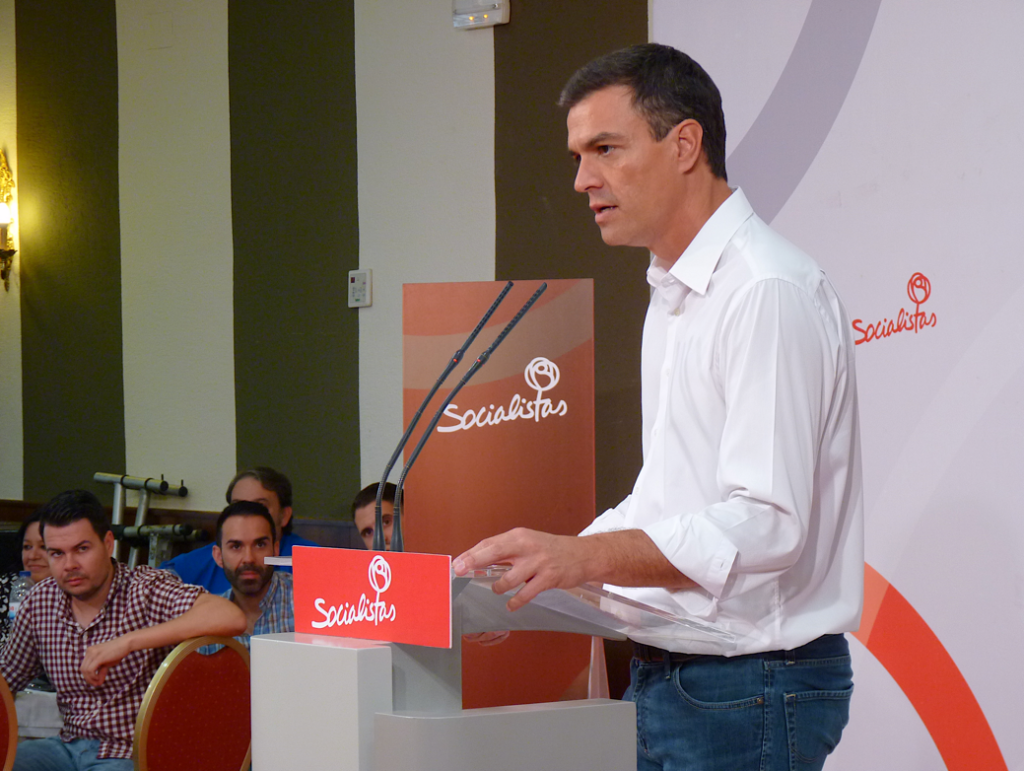
The early optimism surrounding Sánchez’s ascent now feels like a distant memory, the kind that prompts regretful reflection on how quickly political fortunes can change. His light-hearted jab at himself in October 2018 – ‘I know you think everything I do is illegal, immoral and even fattening’ – was delivered with the confidence of a leader riding a wave of popular support. Today, those same words carry an entirely different weight, serving as unintentional reminder on his current predicament.
The irony is huge, almost like in a Shakespearean play. The corruption allegations now plaguing Sánchez’s administration have not only multiplied in number but surpassed in sheer audacity the very scandals that brought down his predecessors. Where the Gürtel case represented the old guard’s systemic corruption, the current controversies suggest a more personal dimension – a troubling blurring of lines between public service and private gain. The scale and nature of these allegations have transformed Sánchez from Spain’s great reform hope into something far more conventional: another politician struggling to explain why his inner circle appears entangled in impropriety.
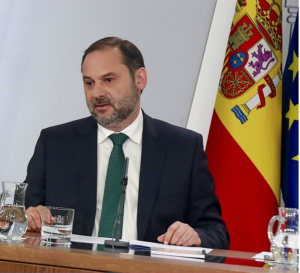
This reversal of fortunes speaks to larger truths about political cycles and the challenges of systemic reform. Sánchez’s experience demonstrates how quickly anti-corruption rhetoric can ring hollow when not matched by consistent action, and how the moral high ground, once lost, becomes nearly impossible to reclaim. The leader who once capitalised on his opponents’ ethical failures now finds himself facing similar questions about judgment and accountability – a development that has left many Spaniards questioning whether any leader can truly break the country’s cycle of political scandal.
As Sánchez confronts these challenges, his predicament serves as a case study in the fragility of political capital built on promises of reform. The very qualities that made his 2018 victory so remarkable – his outsider status, his clean image, his moral clarity – have become vulnerabilities in the face of mounting allegations. A tale that began with promises of democratic rebirth has turned into a warning about politics’ immutable laws—and how swiftly revolutionaries become replicas of what they once opposed.

| Act II: The Unravelling – One Scandal a Week
One can pretty much pin the beginning of the current crisis to February 2023, when the scandal around Koldo García first blew up. García, who used to work as an aide for José Luis Ábalos (the transport minister at the time), got caught up in what looked like a classic pandemic profiteering scheme. We’re talking about allegedly taking bribes to push through these wildly inflated contracts for face masks when COVID was at its worst. Not exactly a good look – the man allegedly used his government contacts to help some small company obtain €53 million in emergency deals, with very confortable kickbacks finding their way back to certain pockets.
Now, José Luis Ábalos, one of those old-school Socialist operators who’s been around forever – was actually Sánchez’s organisational secretary before all this. When the scandal broke, he dug in his heels and refused to step down. That put Sánchez in a real bind, forcing him to publicly fire one of his own. That was the first real chink in the armour, the moment people started thinking, “Well, maybe these people aren’t so different after all.”
But the real bombshell dropped in February 2024. That’s when Spain’s Supreme Court let it slip they were investigating Santos Cerdán – Ábalos’s replacement as party organiser and basically, Sánchez’s right-hand man – for some shady business with public construction contracts. Some of the details that came out were beyond belief.
There were leaked wiretaps where Cerdán appears to be chatting about kickbacks with Ábalos and García. Then there’s this another recording that seems to show them meddling in the 2014 party vote that originally put Sánchez in charge. And just when you thought it couldn’t get worse, out comes this tape of Ábalos and García making all these gross comments about sex workers – which, quite frankly, is pretty awkward for a government that’s always going on about feminism and equality.
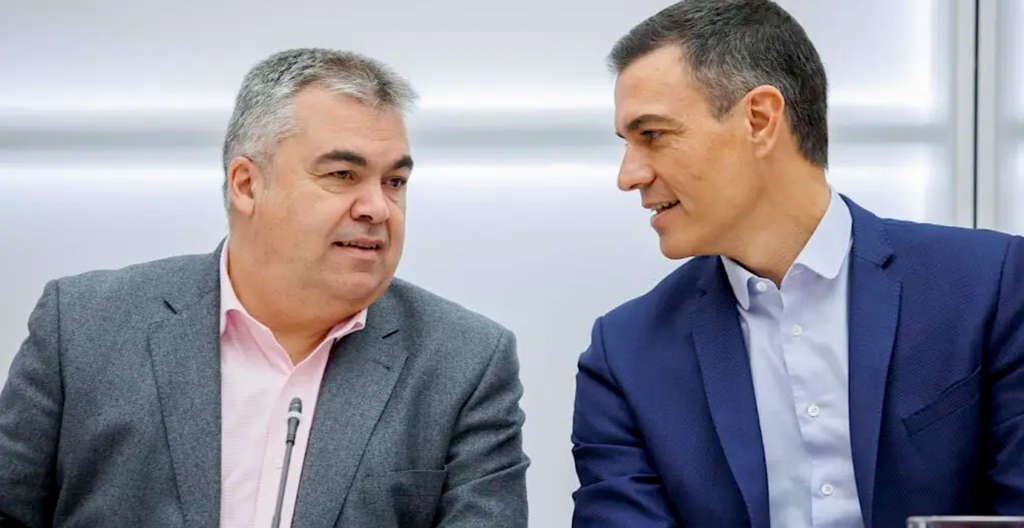
By March, Cerdán was out, and Sánchez was stuck doing that thing politicians do when they’re in damage control mode – saying things like “I should never have trusted him” while trying to keep a straight face. His little speech about how “I’ve always believed in clean politics” would’ve maybe played better if his party hadn’t spent the whole day before insisting Cerdán did nothing wrong.
It’s one of those classic political unravellings where each new revelation makes the last denial look worse. What started as one dodgy mask deal has turned into a whole web of questionable connections that just keeps growing. And the really uncomfortable part? It’s all coming from within Sánchez’s own inner circle – the people he chose to surround himself with. It makes one wonder what else might still be waiting to come out.
| Act III: The Family Under Fire
This whole crisis has gotten way too close for comfort for Sánchez – and that’s exactly why it’s so dangerous for him. It’s one thing when political opponents come after you, but when they start dragging your family into it? That’s when things can get really nasty.
In April 2023, a group linked to the far right called Manos Limpias (Clean Hands), filed a complaint against Sánchez’s wife, Begoña Gómez. They claimed she had used her position as the prime minister’s wife to line up sponsors for some university master’s programme she was running. Then, in January 2024, Sánchez’s brother David got hauled into court over some separate influence-peddling accusations.
Spanish Prime Minister Pedro Sanchez and his spouse, Begoña Gómez © pool Moncloa
Now, Pedro Sánchez isn’t taking this lying down. He’s crying foul, saying this is pure “lawfare” (the weaponisation of courts against politicians). And to be fair, he has got a point about Manos Limpias. These people have form – they have made a habit of going after left-wing figures, and even Spanish prosecutors initially wanted to throw out the case against Begoña Gómez.
But here’s the thing – in today’s political climate, where everyone is at each other’s throats, how things look often matters more than what’s actually true. And the optics here? Brutal. The whole thing hit Sánchez so hard that he actually disappeared from public view for five whole days to “think about his future” – which in politician-speak basically means “panic about whether my career is over.” That kind of move was unprecedented. And instead of calming things down, it just made everyone even more convinced that something was seriously wrong.
What makes this whole situation particularly nasty is how it blurs the line between public and private life. When your opponents start going after your family, it’s not just politics anymore – it’s personal. And that changes the game completely. Sánchez can argue all he wants about political persecution, but when the scandal follows you home from the office, it’s a whole different kind of crisis.
The really uncomfortable question hanging over all this? Whether these family troubles are symptoms of a deeper problem in Spanish politics, where no one’s personal life stays private for long when the knives come out. Or worse – whether they suggest that in Sánchez’s inner circle, the lines between political power and personal gain might have gotten a bit too blurry. Either way, it’s a crisis that doesn’t look like going away anytime soon.
| Act IV: The NATO Dilemma – Spain’s Defence Spending Paradox
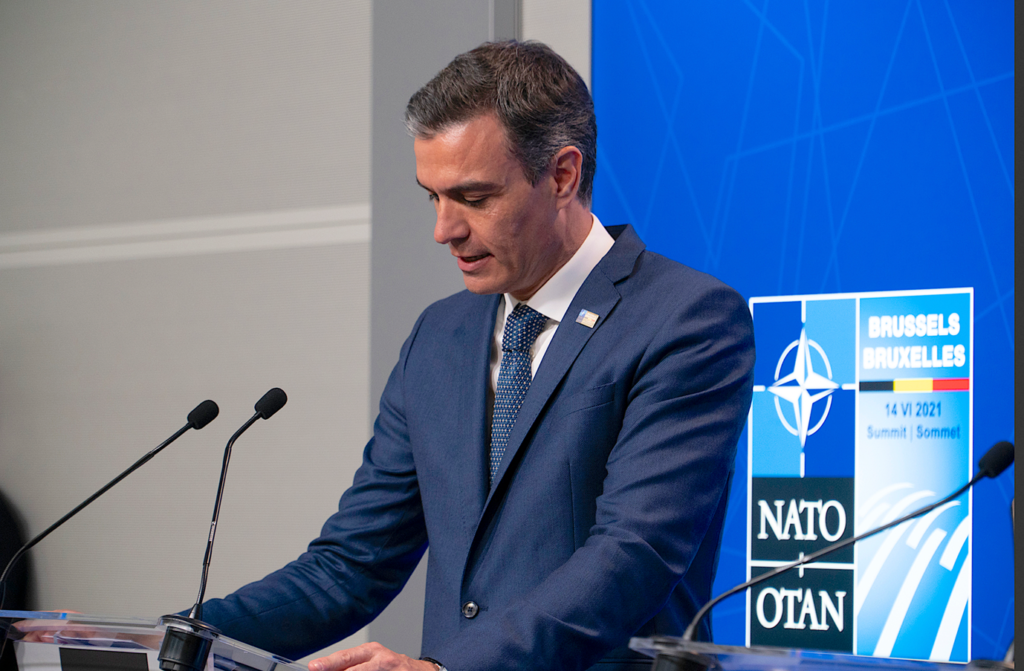
Amid Spain’s ongoing domestic political turbulence, the Sánchez administration has found itself wrestling with an increasingly thorny NATO dilemma. The issue came to a head in early 2024 when alliance members began pushing for unprecedented defence spending increases – first to 2.5%, then 3%, and at one point even floating proposals as high as 5% of GDP in response to Russia’s relentless aggression in Ukraine.
Spain’s position in these talks has been cautious, to say the least. While Eastern European members, especially those bordering Russia, aggressively pushed for the steeper targets, Madrid quietly resisted. Instead of signing onto the more ambitious figures, Spain has stuck to its existing plan – a gradual climb toward NATO’s original 2% benchmark.
And it’s not hard to see why. Strategically, Spain sits in a very different position than frontline states. Shielded by both the Atlantic and the Mediterranean, it faces none of the immediate territorial pressures that keep the Baltics or Poland on edge. But that doesn’t make the balancing act any easier. With political tensions at home already stretching the government thin, Sánchez has had to walk a fine line – supporting NATO solidarity while avoiding commitments that could strain Spain’s budget or spark domestic backlash. Geopolitics rarely offers clean solutions, and this is no exception. Even for a country with Spain’s geographic advantages, the pressures of alliance politics are proving hard to ignore.
This whole debate over defence spending has exposed some deep cracks in Spain’s political and economic foundation. The Spanish military has still not completely shaken off Franco’s shadow and doesn’t seem to command the same respect as in other European democracies. Public sentiment remains wary of militarisation, particularly among Sánchez’s left-wing base. When Defence Minister Margarita Robles suggested Spain might reach 2% by 2029 – already a delayed timeline – critics were quick to point out Spain would still be lagging behind, especially if the 3% or 5% benchmarks gained steam.
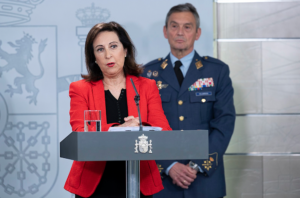
True – money IS tight, and that’s not just an excuse. With debt at 113% of GDP and youth unemployment stubbornly stuck above 30%, shifting billions from social programmes to fighter jets is…a tough sell, politically. The government keeps talking up Spain’s other contributions – cybersecurity, peacekeeping missions, development projects in North Africa. Fair enough, but… Here’s the thing – this approach is rubbing allies the wrong way. At last year’s NATO summit in Washington, Spanish diplomats found themselves pretty much alone as the 5% proposal started gaining ground. American officials were privately expressing frustration at what they saw as Spain dodging its fair share. And you can’t really blame the Eastern Europeans – when you’ve got Russian tanks on your doorstep, Spain’s reluctance must look pretty damn privileged.
Fast forward to The Hague summit this year, and the pressure has only gotten worse. Certainly, Spain has made some symbolic gestures – extra aid for Ukraine, joining more air patrols… but this stubborn refusal to budge on spending targets continues to irritate partners. And those creative accounting methods – trying to count random non-military expenditures towards NATO commitments? Well, nobody seems to be buying that anymore.
Sánchez spelled it out quite bluntly in his letter to NATO Secretary General Mark Rutte: ‘Committing to a 5% target would not only be unreasonable but also counterproductive because it would move Spain further away from optimal spending and would hinder the EU’s ongoing efforts to strengthen its security and defence ecosystem. It is the legitimate right of every government to decide whether or not they are willing to make those sacrifices. As a sovereign ally, we choose not to.’
He’s certainly got a point – but at the same time, you can’t help but wonder how long Spain can keep playing this game. It’s a classic catch-22 – meet the targets and alienate his base, or stick to his position and watch Spain’s NATO influence slowly erode. And more recently, with US President Donald Trump making noises about cracking down on countries he calls “freeloaders”, the timing couldn’t be worse. As Sánchez gears up for what’s sure to be a complicated 2027 general election, this defence spending headache just adds another layer to his political juggling act.
The big question nobody can answer? How much longer Spain can stay in this comfortable middle ground. As NATO potentially shifts toward these massive spending hikes, Madrid might finally have to choose – step up or get left behind. And neither option looks particularly appealing from where Sánchez is sitting.
| Act V: The Coalition Math of Survival
Let’s be realistic – Sánchez’s government has, from the very beginning, always been a precarious balancing act. His PSOE party never had a parliamentary majority to govern alone, so he’s had to rely on this shaky patchwork of regional allies, including Catalan separatists who could wake up one morning and decide they’re done with him.

The conservative People’s Party (PP), led by Alberto Núñez Feijóo, doesn’t quite have the votes to force him out yet—but that could change fast. All it would take is a handful of Basque or Catalan deputies deciding the Socialists are more trouble than they’re worth, and suddenly we’re looking at another snap election. And those Guardia Civil (Spain’s gendarmerie) raids on PSOE offices last month? Well, that’s the kind of thing that usually means more bad news is coming down the pipeline.
You can practically smell the blood. PP insiders aren’t even hiding it—they’re just waiting for one more decent scandal to really trigger a crisis. This includes Isabel Díaz Ayuso, the president of the Community of Madrid, a PP political lightning rod and journalist, who’s made it her mission to turn every minor stumble into proof the left is imploding. Never mind that her own partner’s got tax problems—she seems to be a maestro at deflection.
| Act VI: The Ghost of Portugal’s Collapse
Just across the border, Spain’s socialists are watching Portugal with growing unease – and to be honest, who can blame them? In March 2024, Portugal’s Socialist Party got absolutely hammered in snap elections, collapsing to third place behind the far-right Chega party’s shock surge. Certainly, Spain’s situation isn’t identical – Vox has been around longer than Chega had been – but the similarities? Well, they’re keeping people up at night.
What really stings for Sánchez’s team is that their crowning achievement – keeping the far-right at arm’s length while the rest of Europe veers right – could vanish in an instant if their fragile government topples. One can hear that fear in Sánchez’s speeches, like when he dramatically declared last October that Spain faced a choice between being “an open, prosperous country or a closed-off, poor one.” It’s the kind of stark, us-versus-them rhetoric that shows just how high the stakes feel right now.
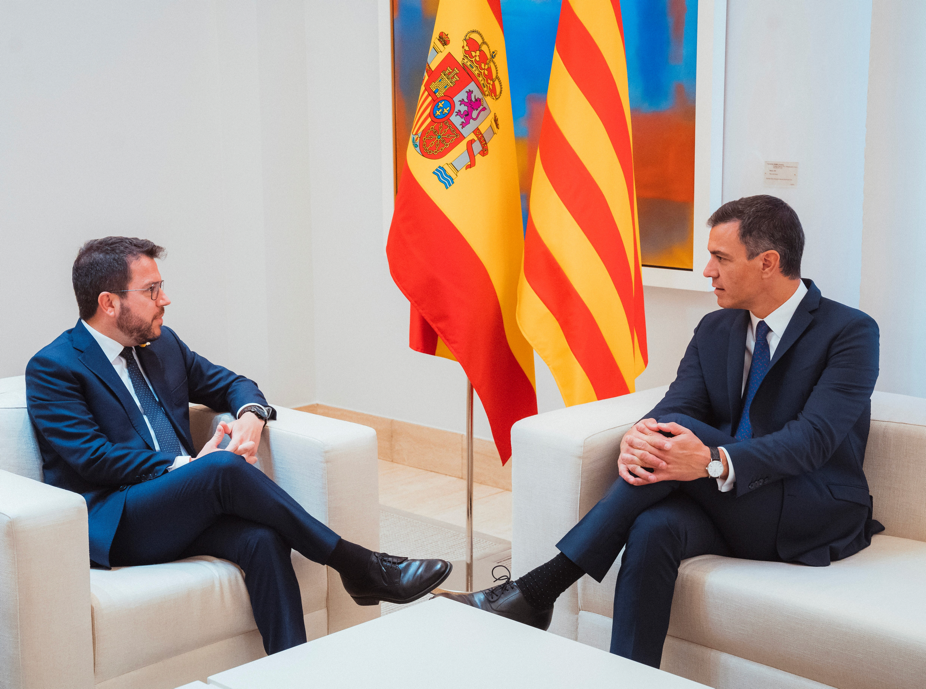
| The Legacy at Stake
Here’s the ironic twist in all this. For all his troubles, Sánchez has actually been one of Europe’s most impactful progressive leaders. Consider this: he managed to cool down Catalonia’s independence crisis through actual dialogue when everyone predicted disaster. His government pushed through groundbreaking feminist policies – we’re talking menstrual leave and expanded abortion access that made other countries take notice. Then there’s the minimum basic income that actually worked, cutting child poverty by a quarter. And let’s not forget legalising euthanasia or standing up for immigrant rights when few others would.
But here’s the kicker – as Pablo Simón, university professor and one of Spain’s sharpest political minds, put it: ‘These corruption scandals have blown up the government’s entire story. Everything the left claimed to stand for – equality, women’s rights, clean politics – suddenly looks suspect.’ It’s brutal when you think about it. All that progress, all those achievements, now overshadowed by the stench of scandal. The legacy’s still there, but good luck getting anyone to focus on it now.
| The Endgame
So where does this leave Spain? Well, nobody really knows – but there are a few ways this could play out. First, there’s the “hanging on” option: Sánchez somehow clings on by cutting new deals with regional parties, but he would basically be a lame duck until the 2027 elections. Not ideal, but possible. Then there’s the nightmare scenario – another big scandal blows up, forcing early elections that could send the hard-right Vox skyrocketing. That possibility is probably keeping socialist strategists awake at night. Or – and this is interesting – we might see Sánchez’s own party turn against him. If enough PSOE heavyweights decide he’s become more liability than leader, they could push him out to try for a fresh start.
However, one thing’s clear: Spain is in completely uncharted waters here. The man who promised to end Spain’s “corruption thriller” has somehow become the main character. And what if this were an actual thriller? You just know there’s going to be one last shocking twist before the end credits roll.
hossein.sadre@europe-diplomatic.eu

